Tác giả: TS Thích Hạnh Tuệ - TS Thích nữ Thanh Quế
Phụ lục 1: Kim Cang Bát Nhã Ba la mật kinh (Phiên âm Hán Việt)
Như thị ngã văn. Nhất thời Phật tại Xá-vệ quốc, Kỳ Thọ Cấp Cô Độc viên, dữ đại tỳ-kheo chúng thiên nhị bá ngũ thập nhân câu.
Nhĩ thời Thế Tôn thực thời, trước y trì bát nhập Xá-vệ đại thành khất thực. Ư kỳ thành trung thứ đệ khất dĩ, hoàn đáo bản xứ, phạn thực ngật, thâu y bát, tẩy túc dĩ, phu tòa nhi tọa.
Thời Trưởng lão Tu-bồ-đề tại đại chúng trung tức tùng tòa khởi, thiên đản hữu kiên, hữu tất trước địa, hiệp chưởng cung kính nhi bạch Phật ngôn: “Hy hữu Thế Tôn! Như Lai thiện hộ niệm chư Bồ tát, thiện phó chúc chư Bồ tát.
“Thế Tôn! Thiện nam tử, thiện nữ nhân phát A-nậu-đa-la Tam-miệu Tam-bồ-đề tâm, ưng vân hà trụ, vân hà hàng phục kỳ tâm?”
Phật ngôn: “Thiện tai! Thiện tai! Tu-bồ-đề, như nhữ sở thuyết. Như Lai thiện hộ niệm chư Bồ tát, thiện phó chúc chư Bồ tát. Nhữ kim đế thính, đương vị nhữ thuyết. Thiện nam tử, thiện nữ nhân phát A-nậu-đa-la Tam-miệu Tam-bồ-đề tâm, ưng như thị trụ, như thị hàng phục kỳ tâm.”
“Duy nhiên Thế Tôn. Nguyện nhạo dục văn.”
Phật cáo Tu-bồ-đề: “Chư Bồ tát ma-ha-tát ưng như thị hàng phục kỳ tâm: Sở hữu nhất thiết chúng sinh chi loại, nhược noãn sinh, nhược thai sinh, nhược thấp sinh, nhược hóa sinh, nhược hữu sắc, nhược vô sắc, nhược hữu tưởng, nhược vô tưởng, nhược phi hữu tưởng phi vô tưởng, ngã giai linh nhập Vô dư Niết-bàn nhi diệt độ chi. Như thị diệt độ vô lượng vô số vô biên chúng sinh, thật vô chúng sinh đắc diệt độ giả."
“Hà dĩ cố? Tu-bồ-đề, nhược Bồ tát hữu ngã tướng, nhân tướng, chúng sinh tướng, thọ giả tướng, tức phi Bồ tát."
“Phục thứ Tu-bồ-đề, Bồ tát ư pháp ưng vô sở trụ hành ư bố thí. Sở vị, bất trụ sắc bố thí, bất trụ thanh, hương, vị, xúc, pháp bố thí."
“Tu-bồ-đề, Bồ tát ưng như thị bố thí, bất trụ ư tướng."
“Hà dĩ cố? Nhược Bồ tát bất trụ tướng bố thí, kỳ phước đức bất khả tư lương."
“Tu-bồ-đề, ư ý vân hà? Đông phương hư không khả tư lương phủ?”
“Phất dã, Thế Tôn.”
“Tu-bồ-đề, nam, tây, bắc phương, tứ duy, thượng, hạ hư không khả tư lương phủ?”
“Phất dã, Thế Tôn.”
“Tu-bồ-đề! Bồ tát vô trụ tướng bố thí phước đức, diệc phục như thị, bất khả tư lương. Tu-bồ-đề, Bồ tát đản ưng như sở giáo trụ."
“Tu-bồ-đề, ư ý vân hà? Khả dĩ thân tướng kiến Như Lai phủ?”
“Phất dã, Thế Tôn. Bất khả dĩ thân tướng đắc kiến Như Lai. Hà dĩ cố? Như Lai sở thuyết thân tướng tức phi thân tướng.”
Phật cáo Tu-bồ-đề: “Phàm sở hữu tướng giai thị hư vọng. Nhược kiến chư tướng phi tướng tắc kiến Như Lai.”
Tu-bồ-đề bạch Phật ngôn: “Thế Tôn, phả hữu chúng sinh đắc văn như thị ngôn thuyết chương cú sinh thật tín phủ?”
Phật cáo Tu-bồ-đề: “Mạc tác thị thuyết. Như Lai diệt hậu, hậu ngũ bá tuế, hữu trì giới tu phước giả, ư thử chương cú năng sinh tín tâm, dĩ thử vi thật. Đương tri thị nhân bất ư nhất Phật, nhị Phật, tam tứ ngũ Phật nhi chủng thiện căn. Dĩ ư vô lượng thiên vạn Phật sở chủng chư thiện căn. Văn thị chương cú, nãi chí nhất niệm sinh tịnh tín giả. Tu-bồ-đề, Như Lai tất tri, tất kiến thị chư chúng sinh đắc như thị vô lượng phước đức."
“Hà dĩ cố? Thị chư chúng sinh vô phục ngã tướng, nhân tướng, chúng sinh tướng, thọ giả tướng, vô pháp tướng diệc vô phi pháp tướng."
“Hà dĩ cố? Thị chư chúng sinh nhược tâm thủ tướng tắc vi trước ngã, nhân, chúng sinh, thọ giả. Hà dĩ cố? Nhược thủ pháp tướng, tức trước ngã, nhân, chúng sinh, thọ giả. Nhược thủ phi pháp tướng, tức trước ngã, nhân, chúng sinh, thọ giả. Thị cố bất ưng thủ pháp, bất ưng thủ phi pháp."
“Dĩ thị nghĩa cố, Như Lai thường thuyết, nhữ đẳng tỳ-kheo tri ngã thuyết pháp như phiệt dụ giả, pháp thượng ưng xả, hà huống phi pháp?"
“Tu-bồ-đề, ư ý vân hà? Như Lai đắc A-nậu-đa-la Tam-miệu Tam-bồ-đề da? Như Lai hữu sở thuyết pháp da?”
Tu-bồ-đề ngôn: “Như ngã giải Phật sở thuyết nghĩa, vô hữu định pháp danh A-nậu-đa-la Tam-miệu Tam-bồ-đề, diệc vô hữu định pháp Như Lai khả thuyết. Hà dĩ cố? Như Lai sở thuyết pháp giai bất khả thủ, bất khả thuyết, phi pháp, phi phi pháp. Sở dĩ giả hà? Nhất thiết hiền thánh giai dĩ vô vi pháp, nhi hữu sai biệt.”
“Tu-bồ-đề, ư ý vân hà? Nhược nhân mãn tam thiên đại thiên thế giới thất bảo dĩ dụng bố thí. Thị nhân sở đắc phước đức ninh vi đa phủ?”
Tu-bồ-đề ngôn: “Thậm đa, Thế Tôn. Hà dĩ cố? Thị phước đức tức phi phước đức tính, thị cố Như Lai thuyết phước đức đa.”
“Nhược phục hữu nhân ư thị kinh trung thọ trì, nãi chí tứ cú kệ đẳng, vị tha nhân thuyết, kỳ phước thắng bỉ.
“Hà dĩ cố? Tu-bồ-đề, nhất thiết chư Phật cập chư Phật A-nậu-đa-la Tam-miệu Tam-bồ-đề pháp giai tùng thử kinh xuất.
“Tu-bồ-đề, sở vị Phật pháp giả tức phi Phật pháp.
“Tu-bồ-đề, ư ý vân hà? Tu-đà-hoàn năng tác thị niệm: Ngã đắc Tu-đà-hoàn quả phủ?”
Tu-bồ-đề ngôn: “Phất dã, Thế Tôn. Hà dĩ cố? Tu-đà-hoàn danh vi nhập lưu, nhi vô sở nhập. Bất nhập sắc, thanh, hương, vị, xúc, pháp. Thị danh Tu-đà-hoàn.”
“Tu-bồ-đề, ư ý vân hà? Tư-đà-hàm năng tác thị niệm: Ngã đắc Tư-đà-hàm quả phủ?”
Tu-bồ-đề ngôn: “Phất dã, Thế Tôn. Hà dĩ cố? Tư-đà-hàm danh nhất vãng lai, nhi thật vô vãng lai. Thị danh Tư-đà-hàm.”
“Tu-bồ-đề, ư ý vân hà? A-na-hàm năng tác thị niệm: Ngã đắc A-na-hàm quả phủ?”
Tu-bồ-đề ngôn: “Phất dã, Thế Tôn. Hà dĩ cố? A-na-hàm danh vi bất lai, nhi thật vô lai. Thị cố danh A-na-hàm.”
“Tu-bồ-đề, ư ý vân hà? A-la-hán năng tác thị niệm: Ngã đắc A-la-hán đạo phủ?”
Tu-bồ-đề ngôn: “Phất dã, Thế Tôn. Hà dĩ cố? Thật vô hữu pháp danh A-la-hán. Thế Tôn, nhược A-la-hán tác thị niệm: Ngã đắc A-la-hán đạo. Tức vi trước ngã, nhân, chúng sinh, thọ giả."
“Thế Tôn, Phật thuyết ngã đắc Vô tránh Tam-muội, nhân trung tối vi đệ nhất, thị đệ nhất ly dục A-la-hán. Ngã bất tác thị niệm: Ngã thị ly dục A-la-hán.
“Thế Tôn, ngã nhược tác thị niệm: Ngã đắc A-la-hán đạo, Thế Tôn tắc bất thuyết: Tu-bồ-đề thị nhạo A-lan-na hạnh giả. Dĩ Tu-bồ-đề thật vô sở hành, nhi danh Tu-bồ-đề thị nhạo A-lan-na hạnh.”
Phật cáo Tu-bồ-đề: “Ư ý vân hà? Như Lai tích tại Nhiên Đăng Phật sở, ư pháp hữu sở đắc phủ?”
“Thế Tôn, Như Lai tại Nhiên Đăng Phật sở, ư pháp thật vô sở đắc.”
“Tu-bồ-đề, ư ý vân hà? Bồ tát trang nghiêm Phật độ phủ?”
“Phất dã, Thế Tôn. Hà dĩ cố? Trang nghiêm Phật độ giả tức phi trang nghiêm, thị danh trang nghiêm.”
“Thị cố Tu-bồ-đề, chư Bồ tát ma-ha-tát ưng như thị sinh thanh tịnh tâm: Bất ưng trụ sắc sinh tâm, bất ưng trụ thanh, hương, vị, xúc, pháp sinh tâm. Ưng vô sở trụ nhi sinh kỳ tâm.”
“Tu-bồ-đề, thí như hữu nhân, thân như Tu-di sơn vương. Ư ý vân hà, thị thân vi đại phủ?”
Tu-bồ-đề ngôn: “Thậm đại, Thế Tôn. Hà dĩ cố? Phật thuyết phi thân thị danh đại thân.
“Tu-bồ-đề, như Hằng hà trung sở hữu sa số, như thị sa đẳng Hằng hà. Ư ý vân hà, thị chư Hằng hà sa đẳng ninh vi đa phủ?”
Tu-bồ-đề ngôn: “Thậm đa, Thế Tôn. Đản chư Hằng hà thượng đa vô số, hà huống kỳ sa.”
“Tu-bồ-đề! Ngã kim thật ngôn cáo nhữ. Nhược hữu thiện nam tử, thiện nữ nhân dĩ thất bảo mãn sở Hằng hà sa số tam thiên đại thiên thế giới, dĩ dụng bố thí đắc phước đa phủ?”
Tu-bồ-đề ngôn: “Thậm đa, Thế Tôn.”
Phật cáo Tu-bồ-đề: “Nhược thiện nam tử, thiện nữ nhân ư thử kinh trung nãi chí thọ trì tứ cú kệ đẳng, vị tha nhân thuyết, nhi thử phước đức thắng tiền phước đức.
“Phục thứ Tu-bồ-đề, tùy thuyết thị kinh, nãi chí tứ cú kệ đẳng, đương tri thử xứ nhất thiết thế gian thiên, nhân, a-tu-la giai ưng cúng dường như Phật tháp miếu. Hà huống hữu nhân tận năng thọ trì độc tụng.
“Tu-bồ-đề, đương tri thị nhân thành tựu tối thượng đệ nhất hy hữu chi pháp. Nhược thị kinh điển sở tại chi xứ, tắc vi hữu Phật nhược tôn trọng đệ tử.”
Nhĩ thời Tu-bồ-đề bạch Phật ngôn: “Thế Tôn! Đương hà danh thử kinh? Ngã đẳng vân hà phụng trì?”
Phật cáo Tu-bồ-đề: “Thị kinh danh vi Kim cang Bát-nhã Ba-la-mật. Dĩ thị danh tự nhữ đương phụng trì. Sở dĩ giả hà? Tu-bồ-đề, Phật thuyết Bát-nhã ba-la-mật tức phi Bát-nhã ba-la-mật."
“Tu-bồ-đề, ư ý vân hà? Như Lai hữu sở thuyết pháp phủ?”
Tu-bồ-đề bạch Phật ngôn: “Thế Tôn, Như Lai vô sở thuyết.”
“Tu-bồ-đề, ư ý vân hà? Tam thiên đại thiên thế giới sở hữu vi trần thị vi đa phủ?”
Tu-bồ-đề ngôn: “Thậm đa, Thế Tôn.”
“Tu-bồ-đề, chư vi trần Như Lai thuyết phi vi trần, thị danh vi trần. Như Lai thuyết thế giới phi thế giới, thị danh thế giới.
“Tu-bồ-đề, ư ý vân hà? Khả dĩ tam thập nhị tướng kiến Như Lai phủ?”
“Phất dã, Thế Tôn. Bất khả dĩ tam thập nhị tướng đắc kiến Như Lai. Hà dĩ cố? Như Lai thuyết tam thập nhị tướng tức thị phi tướng, thị danh tam thập nhị tướng.”
“Tu-bồ-đề, nhược hữu thiện nam tử, thiện nữ nhân dĩ Hằng hà sa đẳng thân mạng bố thí. Nhược phục hữu nhân ư thử kinh trung nãi chí thọ trì tứ cú kệ đẳng, vị tha nhân thuyết, kỳ phước thậm đa.”
Nhĩ thời Tu-bồ-đề văn thuyết thị kinh, thâm giải nghĩa thú, thế lệ bi khấp nhi bạch Phật ngôn: “Hy hữu Thế Tôn, Phật thuyết như thị thậm thâm kinh điển. Ngã tùng tích lai sở đắc huệ nhãn, vị tằng đắc văn như thị chi kinh."
“Thế Tôn, nhược phục hữu nhân đắc văn thị kinh, tín tâm thanh tịnh tắc sinh thật tướng. Đương tri thị nhân thành tựu đệ nhất hy hữu công đức."
“Thế Tôn! Thị thật tướng giả tức thị phi tướng, thị cố Như Lai thuyết danh thật tướng."
“Thế Tôn! Ngã kim đắc văn như thị kinh điển, tín giải thọ trì bất túc vi nan. Nhược đương lai thế hậu ngũ bá tuế, kỳ hữu chúng sinh đắc văn thị kinh tín giải thọ trì. Thị nhân tắc vi đệ nhất hy hữu. Hà dĩ cố? Thử nhân vô ngã tướng, nhân tướng, chúng sinh tướng, thọ giả tướng. Sở dĩ giả hà? Ngã tướng tức thị phi tướng. Nhân tướng, chúng sinh tướng, thọ giả tướng tức thị phi tướng. Hà dĩ cố? Ly nhất thiết chư tướng tức danh chư Phật.”
Phật cáo Tu-bồ-đề: “Như thị, như thị. Nhược phục hữu nhân đắc văn thị kinh, bất kinh, bất bố, bất úy, đương tri thị nhân thậm vi hy hữu."
“Hà dĩ cố? Tu-bồ-đề, Như Lai thuyết đệ nhất ba-la-mật phi đệ nhất ba-la-mật, thị danh đệ nhất ba-la-mật."
“Tu-bồ-đề! Nhẫn nhục ba-la-mật Như Lai thuyết phi Nhẫn nhục ba-la-mật. Hà dĩ cố? Như ngã tích vị Ca-lỵ vương cát triệt thân thể. Ngã ư nhĩ thời vô ngã tướng, vô nhân tướng, vô chúng sinh tướng, vô thọ giả tướng."
“Hà dĩ cố? Ngã ư vãng tích tiết tiết chi giải thời, nhược hữu ngã tướng, nhân tướng, chúng sinh tướng, thọ giả tướng, ưng sinh sân hận."
“Tu-bồ-đề, hựu niệm quá khứ ư ngũ bá thế tác nhẫn nhục tiên nhân. Ư nhĩ sở thế vô ngã tướng, vô nhân tướng, vô chúng sinh tướng, vô thọ giả tướng."
“Thị cố Tu-bồ-đề, Bồ tát ưng ly nhất thiết tướng phát A-nậu-đa-la Tam-miệu Tam-bồ-đề tâm."
“Bất ưng trụ sắc sinh tâm, bất ưng trụ thanh, hương, vị, xúc, pháp sinh tâm. Ưng sinh vô sở trụ tâm."
“Nhược tâm hữu trụ tắc vi phi trụ."
“Thị cố Phật thuyết Bồ tát tâm bất ưng trụ sắc bố thí."
“Tu-bồ-đề! Bồ tát vị lợi ích nhất thiết chúng sinh, ưng như thị bố thí."
“Như Lai thuyết nhất thiết chư tướng tức thị phi tướng, hựu thuyết nhất thiết chúng sinh tức phi chúng sinh."
“Tu-bồ-đề! Như Lai thị chân ngữ giả, thật ngữ giả, như ngữ giả, bất cuống ngữ giả, bất dị ngữ giả."
“Tu-bồ-đề! Như Lai sở đắc pháp. Thử pháp vô thật vô hư."
“Tu-bồ-đề, nhược Bồ tát tâm trụ ư pháp nhi hành bố thí, như nhân nhập ám, tắc vô sở kiến."
“Nhược Bồ tát tâm bất trụ pháp nhi hành bố thí, như nhân hữu mục, nhật quang minh chiếu kiến chủng chủng sắc."
“Tu-bồ-đề, đương lai chi thế nhược hữu thiện nam tử, thiện nữ nhân năng ư thử kinh thọ trì độc tụng, tắc vi Như Lai dĩ Phật trí huệ tất tri thị nhân, tất kiến thị nhân, giai đắc thành tựu vô lượng vô biên công đức."
“Tu-bồ-đề, nhược hữu thiện nam tử, thiện nữ nhân sơ nhật phần dĩ Hằng hà sa đẳng thân bố thí, trung nhật phần phục dĩ Hằng hà sa đẳng thân bố thí, hậu nhật phần diệc dĩ Hằng hà sa đẳng thân bố thí. Như thị vô lượng bá thiên vạn ức kiếp dĩ thân bố thí."
“Nhược phục hữu nhân văn thử kinh điển tín tâm bất nghịch, kỳ phước thắng bỉ. Hà huống thơ tả, thọ trì, độc tụng, vị nhân giải thuyết."
“Tu-bồ-đề, dĩ yếu ngôn chi, thị kinh hữu bất khả tư nghị, bất khả xưng lượng, vô biên công đức."
“Như Lai vị phát Đại thừa giả thuyết, vị phát Tối thượng thừa giả thuyết. Nhược hữu nhân năng thọ trì độc tụng, quảng vị nhân thuyết, Như Lai tất tri thị nhân, tất kiến thị nhân giai đắc thành tựu bất khả lượng, bất khả xứng, vô hữu biên, bất khả tư nghị công đức."
“Như thị nhân đẳng tắc vi hà đảm Như Lai A-nậu-đa-la Tam-miệu Tam-bồ-đề."
“Hà dĩ cố? Tu-bồ-đề, nhược nhạo tiểu pháp giả, trước ngã kiến, nhân kiến, chúng sinh kiến, thọ giả kiến, tắc ư thử kinh bất năng thính thọ, độc tụng, vị nhân giải thuyết.
“Tu-bồ-đề, tại tại xứ xứ nhược hữu thử kinh, nhất thiết thế gian thiên, nhân, a-tu-la sở ưng cúng dường. Đương tri thử xứ tắc vi thị tháp, giai ưng cung kính tác lễ vi nhiễu, dĩ chư hoa hương nhi tán kỳ xứ."
“Phục thứ Tu-bồ-đề! Thiện nam tử, thiện nữ nhân thọ trì độc tụng thử kinh, nhược vi nhân khinh tiện. Thị nhân tiên thế tội nghiệp ưng đọa ác đạo, dĩ kim thế nhân khinh tiện cố, tiên thế tội nghiệp tắc vi tiêu diệt, đương đắc A-nậu-đa-la Tam-miệu Tam-bồ-đề."
“Tu-bồ-đề, ngã niệm quá khứ vô lượng a-tăng-kỳ kiếp, ư Nhiên Đăng Phật tiền đắc trị bát bá tứ thiên vạn ức na-do-tha chư Phật, tất giai cúng dường thừa sự vô không quá giả. Nhược phục hữu nhân ư hậu mạt thế, năng thọ trì độc tụng thử kinh, sở đắc công đức, ư ngã sở cúng dường chư Phật công đức, bá phần bất cập nhất, thiên vạn ức phần, nãi chí toán số thí dụ sở bất năng cập."
“Tu-bồ-đề, nhược thiện nam tử, thiện nữ nhân ư hậu mạt thế hữu thọ trì độc tụng thử kinh sở đắc công đức, ngã nhược cụ thuyết giả, hoặc hữu nhân văn tâm tắc cuồng loạn hồ nghi bất tín."
“Tu-bồ-đề, đương tri thị kinh nghĩa bất khả tư nghị, quả báo diệc bất khả tư nghị.”
Nhĩ thời Tu-bồ-đề bạch Phật ngôn: “Thế Tôn! Thiện nam tử, thiện nữ nhân phát A-nậu-đa-la Tam-miệu Tam-bồ-đề tâm, vân hà ưng trụ? Vân hà hàng phục kỳ tâm?”
Phật cáo Tu-bồ-đề: “Thiện nam tử, thiện nữ nhân phát A-nậu-đa-la Tam-miệu Tam-bồ-đề giả, đương sinh như thị tâm: Ngã ưng diệt độ nhất thiết chúng sinh. Diệt độ nhất thiết chúng sinh dĩ, nhi vô hữu nhất chúng sinh thật diệt độ giả."
“Hà dĩ cố? Tu-bồ-đề, nhược Bồ tát hữu ngã tướng, nhân tướng, chúng sinh tướng, thọ giả tướng, tức phi Bồ tát."
“Sở dĩ giả hà? Tu-bồ-đề, thật vô hữu pháp phát A-nậu-đa-la Tam-miệu Tam-bồ-đề giả."
“Tu-bồ-đề, ư ý vân hà? Như Lai ư Nhiên Đăng Phật sở hữu pháp đắc A-nậu-đa-la Tam-miệu Tam-bồ-đề phủ?”
“Phất dã, Thế Tôn. Như ngã giải Phật sở thuyết nghĩa, Phật ư Nhiên Đăng Phật sở vô hữu pháp đắc A-nậu-đa-la Tam-miệu Tam-bồ-đề.”
Phật ngôn: “Như thị, như thị. Tu-bồ-đề, thật vô hữu pháp Như Lai đắc A-nậu-đa-la Tam-miệu Tam-bồ-đề."
“Tu-bồ-đề, nhược hữu pháp Như Lai đắc A-nậu-đa-la Tam-miệu Tam-bồ-đề giả, Nhiên Đăng Phật tắc bất dữ ngã thọ ký: Nhữ ư lai thế đương đắc tác Phật hiệu Thích-ca Mâu-ni. Dĩ thật vô hữu pháp đắc A-nậu-đa-la Tam-miệu Tam-bồ-đề, thị cố Nhiên Đăng Phật dữ ngã thọ ký, tác thị ngôn: Nhữ ư lai thế đương đắc tác Phật hiệu Thích-ca Mâu-ni."
“Hà dĩ cố? Như Lai giả tức chư pháp như nghĩa."
“Nhược hữu nhân ngôn: Như Lai đắc A-nậu-đa-la Tam-miệu Tam-bồ-đề. Tu-bồ-đề! Thật vô hữu pháp Phật đắc A-nậu-đa-la Tam-miệu Tam-bồ-đề."
“Tu-bồ-đề! Như Lai sở đắc A-nậu-đa-la Tam-miệu Tam-bồ-đề, ư thị trung vô thật, vô hư."
“Thị cố Như Lai thuyết nhất thiết pháp giai thị Phật pháp."
“Tu-bồ-đề! Sở ngôn nhất thiết pháp giả, tức phi nhất thiết pháp, thị cố danh nhất thiết pháp. Tu-bồ-đề, thí như nhân thân trường đại.”
Tu-bồ-đề ngôn: “Thế Tôn, Như Lai thuyết nhân thân trường đại tức vi phi đại thân, thị danh đại thân.”
“Tu-bồ-đề! Bồ tát diệc như thị. Nhược tác thị ngôn: Ngã đương diệt độ vô lượng chúng sinh tức bất danh Bồ tát. Hà dĩ cố? Tu-bồ-đề! Thật vô hữu pháp danh vi Bồ tát. Thị cố Phật thuyết nhất thiết pháp vô ngã, vô nhân, vô chúng sinh, vô thọ giả."
“Tu-bồ-đề! Nhược Bồ tát tác thị ngôn: “Ngã đương trang nghiêm Phật độ”, thị bất danh Bồ tát. Hà dĩ cố? Như Lai thuyết trang nghiêm Phật độ giả, tức phi trang nghiêm thị danh trang nghiêm."
“Tu-bồ-đề! Nhược Bồ tát thông đạt vô ngã pháp giả, Như Lai thuyết danh chân thị Bồ tát."
“Tu-bồ-đề! Ư ý vân hà? Như Lai hữu nhục nhãn phủ?”
“Như thị, Thế Tôn. Như Lai hữu nhục nhãn.”
“Tu-bồ-đề! Ư ý vân hà? Như Lai hữu thiên nhãn phủ?”
“Như thị, Thế Tôn. Như Lai hữu thiên nhãn.”
“Tu-bồ-đề! Ư ý vân hà? Như Lai hữu huệ nhãn phủ?”
“Như thị, Thế Tôn. Như Lai hữu huệ nhãn.”
“Tu-bồ-đề! Ư ý vân hà? Như Lai hữu pháp nhãn phủ?”
“Như thị, Thế Tôn. Như Lai hữu pháp nhãn.”
“Tu-bồ-đề! Ư ý vân hà? Như Lai hữu Phật nhãn phủ?”
“Như thị, Thế Tôn. Như Lai hữu Phật nhãn.”
“Tu-bồ-đề! Ư ý vân hà? Hằng hà trung sở hữu sa, Phật thuyết thị sa phủ?”
“Như thị, Thế Tôn. Như Lai thuyết thị sa.”
“Tu-bồ-đề! Ư ý vân hà? Như nhất Hằng hà trung sở hữu sa, hữu như thị đẳng Hằng hà, thị chư Hằng hà sở hữu sa số Phật thế giới. Như thị ninh vi đa phủ?”
“Thậm đa, Thế Tôn.”
Phật cáo Tu-bồ-đề: “Nhĩ sở quốc độ trung sở hữu chúng sinh nhược can chủng tâm Như Lai tất tri. Hà dĩ cố? Như Lai thuyết chư tâm giai vi phi tâm, thị danh vi tâm.
Sở dĩ giã hà? Tu-bồ-đề! Quá khứ tâm bất khả đắc, hiện tại tâm bất khả đắc, vị lai tâm bất khả đắc."
“Tu-bồ-đề! Ư ý vân hà? Nhược hữu nhân mãn tam thiên đại thiên thế giới thất bảo dĩ dụng bố thí, thị nhân dĩ thị nhân duyên đắc phước đa phủ?”
“Như thị, Thế Tôn. Thử nhân dĩ thị nhân duyên đắc phước thậm đa.”
“Tu-bồ-đề! Nhược phước đức hữu thật, Như Lai bất thuyết đắc phước đức đa. Dĩ phước đức vô cố, Như Lai thuyết đắc phước đức đa."
“Tu-bồ-đề! Ư ý vân hà? Phật khả dĩ cụ túc sắc thân kiến phủ?”
“Phất dã, Thế Tôn. Như Lai bất ưng dĩ cụ túc sắc thân kiến. Hà dĩ cố? Như Lai thuyết cụ túc sắc thân tức phi cụ túc sắc thân, thị danh cụ túc sắc thân."
“Tu-bồ-đề! Ư ý vân hà? Như Lai khả dĩ cụ túc chư tướng kiến phủ?”
“Phất dã, Thế Tôn. Như Lai bất ưng dĩ cụ túc chư tướng kiến. Hà dĩ cố? Như Lai thuyết chư tướng cụ túc tức phi cụ túc, thị danh chư tướng cụ túc.”
“Tu-bồ-đề! Nhữ vật vị Như Lai tác thị niệm: Ngã đương hữu sở thuyết pháp. Mạc tác thị niệm. Hà dĩ cố? Nhược nhân ngôn Như Lai hữu sở thuyết pháp tức vi báng Phật, bất năng giải ngã sở thuyết cố."
“Tu-bồ-đề! Thuyết pháp giả vô pháp khả thuyết, thị danh thuyết pháp.”
Nhĩ thời Huệ Mạng Tu-bồ-đề bạch Phật ngôn: “Phả hữu chúng sinh ư vị lai thế văn thuyết thị pháp sinh tín tâm phủ?”
Phật ngôn: “Tu-bồ-đề! Bỉ phi chúng sinh phi bất chúng sinh."
"Hà dĩ cố? Tu-bồ-đề! Chúng sinh, chúng sinh giả, Như Lai thuyết phi chúng sinh thị danh chúng sinh.”
Tu-bồ-đề bạch Phật ngôn: “Phật đắc A-nậu-đa-la Tam-miệu Tam-bồ-đề, vi vô sở đắc da?”
Phật ngôn: “Như thị, như thị. Tu-bồ-đề, ngã ư A-nậu-đa-la Tam-miệu Tam-bồ-đề nãi chí vô hữu thiểu pháp khả đắc, thị danh A-nậu-đa-la Tam-miệu Tam-bồ-đề."
“Phục thứ Tu-bồ-đề! Thị pháp bình đẳng vô hữu cao hạ, thị danh A-nậu-đa-la Tam-miệu Tam-bồ-đề. Dĩ vô ngã, vô nhân, vô chúng sinh, vô thọ giả, tu nhất thiết thiện pháp tức đắc A-nậu-đa-la Tam-miệu Tam-bồ-đề. Tu-bồ-đề! Sở ngôn thiện pháp giả, Như Lai thuyết phi thiện pháp thị danh thiện pháp."
“Tu-bồ-đề! Nhược tam thiên đại thiên thế giới trung sở hữu chư Tu-di sơn vương, như thị đẳng thất bảo tụ, hữu nhân trì dụng bố thí. Nhược nhân dĩ thử Bát-nhã ba-la-mật kinh, nãi chí tứ cú kệ đẳng, thọ trì độc tụng vị tha nhân thuyết, ư tiền phước đức bá phần bất cập nhất, bá thiên vạn ức phần, nãi chí toán số thí dụ sở bất năng cập."
“Tu-bồ-đề! Ư ý vân hà? Nhữ đẳng vật vị Như Lai tác thị niệm: Ngã đương độ chúng sinh. Tu-bồ-đề! Mạc tác thị niệm."
“Hà dĩ cố? Thật vô hữu chúng sinh Như Lai độ giả. Nhược hữu chúng sinh Như Lai độ giả, Như Lai tắc hữu ngã, nhân, chúng sinh, thọ giả."
“Tu-bồ-đề! Như Lai thuyết hữu ngã giả tức phi hữu ngã, nhi phàm phu chi nhân dĩ vi hữu ngã."
“Tu-bồ-đề! Phàm phu giả, Như Lai thuyết tức phi phàm phu."
“Tu-bồ-đề! Ư ý vân hà? Khả dĩ tam thập nhị tướng quan Như Lai phủ?”
Tu-bồ-đề ngôn: “Như thị, như thị. Dĩ tam thập nhị tướng quan Như Lai.”
Phật ngôn: “Tu-bồ-đề! Nhược dĩ tam thập nhị tướng quan Như Lai giả, Chuyển Luân Thánh vương tắc thị Như Lai.”
Tu-bồ-đề bạch Phật ngôn: “Thế Tôn, như ngã giải Phật sở thuyết nghĩa, bất ưng dĩ tam thập nhị tướng quan Như Lai.”
Nhĩ thời Thế Tôn nhi thuyết kệ ngôn:
“Nhược dĩ sắc kiến ngã,
Dĩ âm thanh cầu ngã.
Thị nhân hành tà đạo,
Bất năng kiến Như Lai”.
“Tu-bồ-đề! Nhữ nhược tác thị niệm: Như Lai bất dĩ cụ túc tướng cố đắc A-nậu-đa-la Tam-miệu Tam-bồ-đề. Tu-bồ-đề! Mạc tác thị niệm: Như Lai bất dĩ cụ túc tướng cố đắc A-nậu-đa-la Tam-miệu Tam-bồ-đề."
“Tu-bồ-đề! Nhược tác thị niệm: Phát A-nậu-đa-la Tam-miệu Tam-bồ-đề giả thuyết chư pháp đoạn diệt tướng. Mạc tác thị niệm."
“Hà dĩ cố? Phát A-nậu-đa-la Tam-miệu Tam-bồ-đề tâm giả, ư pháp bất thuyết đoạn diệt tướng."
“Tu-bồ-đề! Nhược Bồ tát dĩ mãn Hằng hà sa đẳng thế giới thất bảo bố thí. Nhược phục hữu nhân tri nhất thiết pháp vô ngã đắc thành ư nhẫn. Thử Bồ tát thắng tiền Bồ tát sở đắc công đức. Hà dĩ cố? Dĩ chư Bồ tát bất thọ phước đức cố.”
“Tu-bồ-đề bạch Phật ngôn: “Thế Tôn! Vân hà Bồ tát bất thọ phước đức?”
“Tu-bồ-đề! Bồ tát sở tác phước đức bất ưng tham trước. Thị cố thuyết bất thọ phước đức."
“Tu-bồ-đề! Nhược hữu nhân ngôn Như Lai nhược lai, nhược khứ, nhược tọa, nhược ngọa, thị nhân bất giải ngã sở thuyết nghĩa. Hà dĩ cố? Như Lai giả, vô sở tùng lai diệc vô sở khứ, cố danh Như Lai."
“Tu-bồ-đề! Nhược thiện nam tử, thiện nữ nhân dĩ tam thiên đại thiên thế giới toái vi vi trần. Ư ý vân hà? Thị vi trần chúng ninh vi đa phủ?”
“Thậm đa, Thế Tôn. Hà dĩ cố? Nhược thị vi trần chúng thật hữu giả, Phật tắc bất thuyết thị vi trần chúng."
“Sở dĩ giả hà? Phật thuyết vi trần chúng tức phi vi trần chúng, thị danh vi trần chúng."
“Thế Tôn! Như Lai sở thuyết tam thiên đại thiên thế giới tức phi thế giới, thị danh thế giới."
“Hà dĩ cố? Nhược thế giới thật hữu giả, tức thị nhất hiệp tướng. Như Lai thuyết nhất hiệp tướng tức phi nhất hiệp tướng, thị danh nhất hiệp tướng.”
“Tu-bồ-đề! Nhất hiệp tướng giả tức thị bất khả thuyết. Đản phàm phu chi nhân tham trước kỳ sự."
“Tu-bồ-đề! Nhược nhân ngôn Phật thuyết ngã kiến, nhân kiến, chúng sinh kiến, thọ giả kiến. Tu-bồ-đề! Ư ý vân hà? Thị nhân giải ngã sở thuyết nghĩa phủ?”
“Thế Tôn! Thị nhân bất giải Như Lai sở thuyết nghĩa."
“Hà dĩ cố? Thế Tôn thuyết ngã kiến, nhân kiến, chúng sinh kiến, thọ giả kiến tức phi ngã kiến, nhân kiến, chúng sinh kiến, thọ giả kiến, thị danh ngã kiến, nhân kiến, chúng sinh kiến, thọ giả kiến.”
“Tu-bồ-đề! Phát A-nậu-đa-la Tam-miệu Tam-bồ-đề tâm giả, ư nhất thiết pháp ưng như thị tri, như thị kiến, như thị tín giải, bất sinh pháp tướng."
“Tu-bồ-đề! Sở ngôn pháp tướng giả, Như Lai thuyết tức phi pháp tướng, thị danh pháp tướng."
“Tu-bồ-đề! Nhược hữu nhân dĩ mãn vô lượng a-tăng-kỳ thế giới thất bảo trì dụng bố thí. Nhược hữu thiện nam tử, thiện nữ nhân phát Bồ-đề tâm giả, trì ư thử kinh, nãi chí tứ cú kệ đẳng, thọ trì độc tụng, vị nhân diễn thuyết, kỳ phước thắng bỉ."
“Vân hà vị nhân diễn thuyết? Bất thủ ư tướng, như như bất động. Hà dĩ cố?"
"Nhất thiết hữu vi pháp,
Như mộng ảo bào ảnh,
Như lộ diệc như điển.
Ưng tác như thị quán”.
Phật thuyết thị kinh dĩ, Trưởng lão Tu-bồ-đề, cập chư tỳ-kheo, tỳ-kheo ni, ưu-bà-tắc, ưu-bà-di, nhất thiết thế gian, thiên, nhân, A-tu-la... văn Phật sở thuyết giai đại hoan hỷ, tín thọ phụng hành.
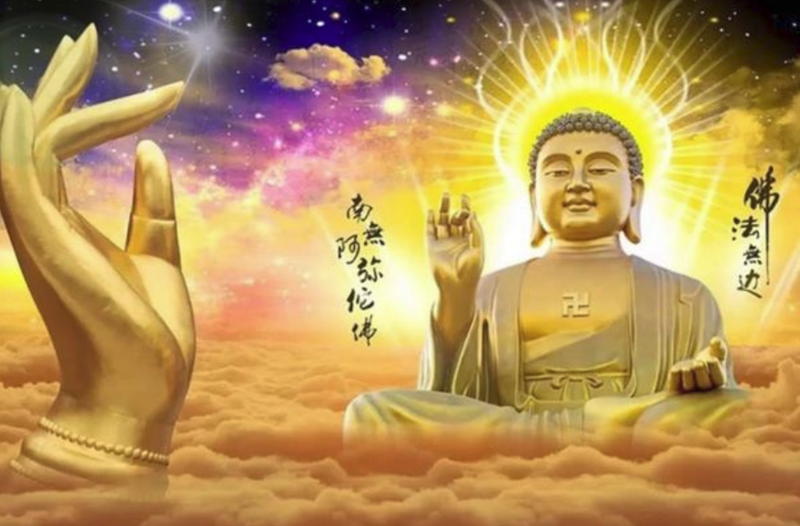
Phụ lục 2: Kinh Kim Cương (Bản tiếng anh)
THE DIAMOND SUTRA
Thus have I heard. Upon a time Buddha sojourned in Anathapindika's Park by Shravasti with a great company of bhikshus, even twelve hundred and fifty.
One day, at the time for breaking fast, the World-honored One enrobed, and carrying His bowl made His way into the great city of Shravasti to beg for His food.
In the midst of the city He begged from door to door according to rule. This done, He returned to His retreat and took His meal. When He had finished He put away His robe and begging bowl, washed His feet, arranged His seat, and sat down.
Now in the midst of the assembly was the Venerable Subhuti. Forthwith he arose, uncovered his right shoulder, knelt upon his right knee, and, respectfully raising his hands with palms joined, addressed Buddha thus: World-honored One, if good men and good women seek the Consummation of Incomparable Enlightenment, by what criteria should they abide and how should they control their thoughts? Buddha said: Very good, Subhuti! Just as you say, the Tathagata is ever-mindful of all the Bodhisattvas, protecting and instructing them well. Now listen and take my words to heart: I will declare to you by what criteria good men and good women seeking the Consummation of Incomparable Enlightenment should abide, and how they should control their thoughts.
Said Subhuti: Pray, do, World-honored One. With joyful anticipation we long to hear.
Buddha said: Subhuti, all the Bodhisattva-Heroes should discipline their thoughts as follows:
All living creatures of whatever class, born from eggs, from wombs, from moisture, or by transformation whether with form or without form, whether in a state of thinking or exempt from thought-necessity, or wholly beyond all thought realms all these are caused by Me to attain Unbounded Liberation Nirvana. Yet when vast, uncountable, immeasurable numbers of beings have thus been liberated, verily no being has been liberated. Why is this, Subhuti? It is because no Bodhisattva who is a real Bodhisattva cherishes the idea of an ego-entity, a personality, a being, or a separated individuality.
Furthermore, Subhuti, in the practice of charity a Bodhisattva should be detached.
That is to say, he should practice charity without regard to appearances; without regard to sound, odor, touch, flavor or any quality. Subhuti, thus should the Bodhisattva practice charity without attachment. Wherefore? In such a case his merit is incalculable.
Subhuti, what do you think? Can you measure all the space extending eastward?
No, World-honored One, I cannot.
Then can you, Subhuti, measure all the space extending southward, westward, northward, or in any other direction, including nadir and zenith?
No, World-honored One, I cannot.
Well, Subhuti, equally incalculable is the merit of the Bodhisattva who practices charity without any attachment to appearances. Subhuti, Bodhisattvas should persevere one- pointedly in this instruction.
Subhuti, what do you think? Is the Tathagata to be recognized by some material characteristic? No, World- honored One; the Tathagata cannot be recognized by any material characteristic. Wherefore? Because the Tathagata has said that material characteristics are not, in fact, material characteristics.
Buddha said: Subhuti, wheresoever are material characteristics there is delusion; but who so perceives that all characteristics are in fact no-characteristics, perceives the Tathagata.
Subhuti said to Buddha: World-honored One, will there always be men who will truly believe after coming to hear these teachings? Buddha answered: Subhuti, do not utter such words! At the end of the last fivehundred-year period following the passing of the Tathagata, there will be self- controlled men, rooted in merit, coming to hear these teachings, who will be inspired with belief. But you should realize that such men have not strengthened their root of merit under just one Buddha, or two Buddhas, or three, or four, or five Buddhas, but under countless Buddhas; and their merit is of every kind. Such men, coming to hear these teachings, will have an immediate uprising of pure faith, Subhuti; and the Tathagata will recognize them. Yes, He will clearly perceive all these of pure heart, and the magnitude of their moral excellences. Wherefore? It is because such men will not fall back to cherishing the idea of an ego-entity, a personality, a being, or a separated individuality. They will neither fall back to cherishing the idea of things as having intrinsic qualities, nor even of things as devoid of intrinsic qualities.
Wherefore? Because if such men allowed their minds to grasp and hold on to anything they would be cherishing the idea of an ego-entity, a personality, a being, or a separated individuality; and if they grasped and held on to the notion of things as having intrinsic qualities they would be cherishing the idea of an ego-entity, a personality, a being, or a separated individuality. Likewise, if they grasped and held on to the notion of things as devoid of intrinsic qualities they would be cherishing the idea of an ego-entity, a personality, a being, or a separated individuality. So you should not be attached to things as being possessed of, or devoid of, intrinsic qualities.
This is the reason why the Tathagata always teaches this saying: My teaching of the Good Law is to be likened unto a raft. [Does a man who has safely crossed a flood upon a raft continue his journey carrying that raft upon his head?] The Buddha-teaching must be relinquished; how much more so mis-teaching!
Subhuti, what do you think? Has the Tathagata attained the Consummation of Incomparable Enlightenment? Has the Tathagata a teaching to enunciate? Subhuti answered: As I understand Buddha's meaning there is no formulation of truth called Consummation of Incomparable Enlightenment. Moreover, the Tathagata has no formulated teaching to enunciate. Wherefore? Because the Tathagata has said that truth is uncontainable and inexpressible. It neither is nor is it not.Thus it is that this unformulated Principle is the foundation of the different systems of all the sages.
Subhuti, what do you think? If anyone filled three thousand galaxies of worlds with the seven treasures and gave all away in gifts of alms, would he gain great merit? Subhuti said: Great indeed, World-honored One! Wherefore? Because merit partakes of the character of no-merit, the Tathagata characterized the merit as great.
Then Buddha said: On the other hand, if anyone received and retained even only four lines of this Discourse and taught and explained them to others, his merit would be the greater.
Wherefore? Because, Subhuti, from this Discourse issue forth all the Buddhas and the Consummation of Incomparable Enlightenment teachings of all the Buddhas.
Subhuti, what is called "the Religion given by Buddha" is not, in fact Buddha Religion.
Subhuti, what do you think? Does a disciple who has entered the Stream of the Holy Life say within himself: I obtain the fruit of a Stream-entrant? Subhuti said:
No, World-honored One. Wherefore? Because "Stream- entrant" is merely a name.
There is no stream-entering. The disciple who pays no regard to form, sound, odor, taste, touch, or any quality, is called a Stream-entrant.
Subhuti, what do you think? Does an adept who is subject to only one more rebirth say within himself: I obtain the fruit of a Once-to-be-reborn? Subhuti said: No, World-honored One. Wherefore? Because "Once-to-be-reborn" is merely a name. There is no passing away nor coming into existence. [The adept who realizes] this is called "Once-to-be-reborn."
Subhuti, what do you think? Does a venerable one who will never more be reborn as a mortal say within himself: I obtain the fruit of a Non-returner? Subhuti said: No, World-honored One. Wherefore? Because "Non-returner" is merely a name. There is no non-returning; hence the designation "Non- returner." Subhuti, what do you think? Does a holy one say within himself: I have obtained Perfective Enlightenment? Subhuti said: No, World-honored One. Wherefore? Because there is no such condition as that called "Perfective Enlightenment." World-honored one, if a holy one of Perfective Enlightenment said to himself "such am I," he would necessarily partake of the idea of an ego-entity, a personality, a being, or a separated individuality. World- honored One, when the Buddha declares that I excel amongst holy men in the Yoga of perfect quiescence, in dwelling in seclusion, and in freedom from passions, I do not say within myself:
I am a holy one of Perfective Enlightenment, free from passions.
World-honored One, if I said within myself: Such am I; you would not declare:
Subhuti finds happiness abiding in peace, in seclusion in the midst of the forest.
This is because Subhuti abides nowhere: therefore he is called, "Subhuti, Joyful Abider-in-Peace, Dweller-in- Seclusion-in-the-Forest."
Buddha said: Subhuti, what do you think? In the remote past when the Tathagata was with Dipankara Buddha, did he have any degree of attainment in the Good Law? No, World- honored One. When the Tathagata was with Dipankara Buddha he had no degree of attainment in the Good Law.
Subhuti, what do you think? Does a Bodhisattva set forth any majestic Buddhalands? No, World-honored One. Wherefore? Because setting forth majestic Buddha-lands is not a majestic setting forth; this is merely a name.
Then Buddha continued: Therefore, Subhuti, all Bodhisattvas, lesser and great, should develop a pure, lucid mind, not depending upon sound, flavor, touch, odor, or any quality. A Bodhisattva should develop a mind which alights upon no thing whatsoever; and so should he establish it.
Subhuti, this may be likened to a human frame as large as the mighty Mount Sumeru. What do you think? Would such a body be great? Subhuti replied: Great indeed, World-honored One. This is because Buddha has explained that no body is called a great body.
Subhuti, if there were as many Ganges rivers as the sand- grains of the Ganges, would the sand-grains of them all be many? Subhuti said: Many indeed, World-honored One! Even the Ganges rivers would be innumerable; how much more so would be their sand-grains? Subhuti, I will declare a truth to you. If a good man or good woman filled three thousand galaxies of worlds with the seven treasures for each sand-grain in all those Ganges rivers, and gave all away in gifts of alms, would he gain great merit? Subhuti answered: Great indeed, World-honored One! Then Buddha declared: Nevertheless, Subhuti, if a good man or good woman studies this Discourse only so far as to receive and retain four lines, and teaches and explains them to others, the consequent merit would be far greater.
Furthermore, Subhuti, you should know that wheresoever this Discourse is proclaimed, by even so little as four lines, that place should be venerated by the whole realms of Gods, Men and Titans as though it were a Buddha-Shrine. How much more is this so in the case of one who is able to receive and retain the whole and read and recite it throughout! Subhuti, you should know that such a one attains the highest and most wonderful truth.
Wheresoever this sacred Discourse may be found there should you comport yourself as though in the presence of Buddha and disciples worthy of honor.
At that time Subhuti addressed Buddha, saying: World- honored One, by what name should this Discourse be known, and how should we receive and retain it? Buddha answered: Subhuti, this Discourse should be known as "The Diamond of the Perfection of Transcendental Wisdom" - thus should you receive and retain it.
Subhuti, what is the reason herein? According to the Buddha-teaching the Perfection of Transcendental Wisdom is not really such. "Perfection of Transcendental Wisdom" is just the name given to it.
Subhuti, what do you think? Has the Tathagata a teaching to enunciate? Subhuti replied to the Buddha: World-honored One, the Tathagata has nothing to teach.
Subhuti, what do you think? Would there be many molecules in [the composition of] three thousand galaxies of worlds?
Subhuti said: Many indeed, World-honored One! Subhuti, the Tathagata declares that all these molecules are not really such; they are called "molecules." [Furthermore,] the Tathagata declares that a world is not really a world; it is called "a world." Subhuti, what do you think? May the Tathagata be perceived by the thirty-two physical peculiarities [of an outstanding sage]? No, World-honored One, the Tathagata may not be perceived by these thirty-two marks.
Wherefore? Because the Tathagata has explained that the thirty-two marks are not really such; they are called "the thirty-two marks." Subhuti, if on the one hand a good man or a good woman sacrifices as many lives as the sand-grains of the Ganges, and on the other hand anyone receives and retains even only four lines of this Discourse, and teaches and explains them to others, the merit of the latter will be the greater.
Upon the occasion of hearing this Discourse Subhuti had an interior realization of its meaning and was moved to tears.
Whereupon he addressed the Buddha thus: It is a most precious thing, World-honored One, that you should deliver this supremely profound Discourse. Never have I heard such an exposition since of old my eye of wisdom first opened. World-honored One, if anyone listens to this Discourse in faith with a pure, lucid mind, he will thereupon conceive an idea of Fundamental Reality. We should know that such a one establishes the most remarkable virtue. World-honored One, such an idea of Fundamental Reality is not, in fact, a distinctive idea; therefore the Tathagata teaches: "Idea of Fundamental Reality" is merely a name.
World-honored One, having listened to this Discourse, I receive and retain it with faith and understanding. This is not difficult for me, but in ages to come - in the last five-hundred years, if there be men coming to hear this Discourse who receive and retain it with faith and understanding, they will be persons of most remarkable achievement. Wherefore? Because they will be free from the idea of an ego-entity, free from the idea of a personality, free from the idea of a being, and free from the idea of a separated individuality. And why? Because the distinguishing of an ego entity is erroneous. Likewise the distinguishing of a personality, or a being, or a separated individuality is erroneous. Consequently those who have left behind every phenomenal distinction are called Buddhas all.
Buddha said to Subhuti: Just as you say! If anyone listens to this Discourse and is neither filled with alarm nor awe nor dread, be it known that such a one is of remarkable achievement.
Wherefore? Because, Subhuti, the Tathagata teaches that the First Perfection [the Perfection of Charity] is not, in fact, the First Perfection: such is merely a name.
Subhuti, the Tathagata teaches likewise that the Perfection of Patience is not the Perfection of Patience: such is merely a name. Why so? It is shown thus, Subhuti:
When the Rajah of Kalinga mutilated my body, I was at that time free from the idea of an ego-entity, a personality, a being, and a separated individuality. Wherefore? Because then when my limbs were cut away piece by piece, had I been bound by the distinctions aforesaid, feelings of anger and hatred would have been aroused in me. Subhuti, I remember that long ago, sometime during my past five-hundred mortal lives, I was an ascetic practicing patience. Even then was I free from those distinctions of separated selfhood.
Therefore, Subhuti, Bodhisattvas should leave behind all phenomenal distinctions and awaken the thought of the Consummation of Incomparable Enlightenment by not allowing the mind to depend upon notions evoked by the sensible world - by not allowing the mind to depend upon notions evoked by sounds, odors, flavors, touch-contacts, or any qualities. The mind should be kept independent of any thoughts which arise within it. If the mind depends upon anything it has no sure haven. This is why Buddha teaches that the mind of a Bodhisattva should not accept the appearances of things as a basis when exercising charity. Subhuti, as Bodhisattvas practice charity for the welfare of all living beings they should do it in this manner.
Just as the Tathagata declares that characteristics are not characteristics, so He declares that all living beings are not, in fact, living beings.
Subhuti, the Tathagata is He who declares that which is true; He who declares that which is fundamental; He who declares that which is ultimate. He does not declare that which is deceitful, nor that which is monstrous. Subhuti, that Truth to which the Tathagata has attained is neither real nor unreal.
Subhuti, if a Bodhisattva practices charity with mind attached to formal notions he is like unto a man groping sightless in the gloom; but a Bodhisattva who practices charity with mind detached from any formal notions is like unto a man with open eyes in the radiant glory of the morning, to whom all kinds of objects are clearly visible.
Subhuti, if there be good men and good women in future ages, able to receive, read and recite this Discourse in its entirety, the Tathagata will clearly perceive and recognize them by means of His Buddha-knowledge; and each one of them will bring immeasurable and incalculable merit to fruition.
Subhuti, if on one hand, a good man or a good woman performs in the morning as many charitable acts of self-denial as the sand-grains of the Ganges, and performs as many again in the noonday and as many again in the evening, and continues so doing throughout numberless ages, and, on the other hand, anyone listens to this Discourse with heart of faith and without contention, the latter would be the more blessed. But how can any comparison be made with one who writes it down, receives it, retains it, and explains it to others! Subhuti, we can summarize the matter by saying that the full value of this Discourse can neither be conceived nor estimated, nor can any limit be set to it.
The Tathagata has declared this teaching for the benefit of initiates of the Great Way; He has declared it for the benefit of initiates of the Supreme Way. Whosoever can receive and retain this teaching, study it, recite it and spread it abroad will be clearly perceived and recognized by the Tathagata and will achieve a perfection of merit beyond measurement or calculation - a perfection of merit unlimited and inconceivable. In every case such a one will exemplify the TathagataConsummation of the Incomparable Enlightenment. Wherefore? Because, Subhuti, those who find consolation in limited doctrines involving the conception of an egoentity, a personality, a being, or a separated individuality are unable to accept, receive, study, recite and openly explain this Discourse.
Subhuti, in every place where this Discourse is to be found the whole realms of Gods, Men and Titans should offer worship; for you must know that such a place is sanctified like a shrine, and should properly be venerated by all with ceremonial obeisance and circumambulation and with offerings of flowers and incense.
Furthermore, Subhuti, if it be that good men and good women who receive and retain this Discourse are downtrodden, their evil destiny is the inevitable retributive result of sins committed in their past mortal lives. By virtue of their present misfortunes the reacting effects of their past will be thereby worked out, and they will be in a position to attain the Consummation of Incomparable Enlightenment.
Subhuti, I remember the infinitely remote past before Dipankara Buddha. There were 84,000 myriads of multimillions of Buddhas and to all these I made offerings; yes, all these I served without the least trace of fault. Nevertheless, if anyone is able to receive, retain, study and recite this Discourse at the end of the last [500-year] period, he will gain such a merit that mine in the service of all the Buddhas could not be reckoned as one-hundredth part of it, not even one thousand myriad multimillionth part of it - indeed, no such comparison is possible.
Subhuti, if I fully detailed the merit gained by good men and good women coming to receive, retain, study and recite this Discourse in the last period, my hearers would be filled with doubt and might become disordered in mind, suspicious and unbelieving. You should know, Subhuti, that the significance of this Discourse is beyond conception; likewise the fruit of its rewards is beyond conception.
At that time Subhuti addressed Buddha, saying: World- honored One, if good men and good women seek the Consummation of Incomparable Enlightenment, by what criteria should they abide and how should they control their thoughts? Buddha replied to Subhuti: Good men and good women seeking the Consummation of Incomparable Enlightenment must create this resolved attitude of mind: I must liberate all living beings, yet when all have been liberated, verily not any one is liberated. Wherefore? If a Bodhisattva cherishes the idea of an egoentity, a personality, a being, or a separated individuality, he is consequently not a Bodhisattva, Subhuti. This is because in reality there is no formula which gives rise to the Consummation of Incomparable Enlightenment.
Subhuti, what do you think? When the Tathagata was with Dipankara Buddha was there any formula for the attainment of the Consummation of Incomparable Enlightenment? No, World-honored One, as I understand Buddha's meaning, there was no formula by which the Tathagata attained the Consummation of Incomparable Enlightenment.
Buddha said: You are right, Subhuti! Verily there was no formula by which the Tathagata attained the Consummation of Incomparable Enlightenment. Subhuti, had there been any such formula, Dipankara Buddha would not have predicted concerning me: "In the ages of the future you will come to be a Buddha called Shakyamuni"; but Dipankara Buddha made that prediction concerning me because there is actually no formula for the attainment of the Consummation of Incomparable Enlightenment.
The reason herein is that Tathagata is a signification implying all formulas. In case anyone says that the Tathagata attained the Consummation of Incomparable Enlightenment, I tell you truly, Subhuti, that there is no formula by which the Buddha attained it. Subhuti, the basis of Tathagata's attainment of the Consummation of Incomparable Enlightenment is wholly beyond; it is neither real nor unreal.
Hence I say that the whole realm of formulations is not really such, therefore it is called "Realm of formulations." Subhuti, a comparison may be made with [the idea of] a gigantic human frame.
Then Subhuti said: The World-honored One has declared that such is not a great body; "a great body" is just the name given to it.
Subhuti, it is the same concerning Bodhisattvas. If a Bodhisattva announces: I will liberate all living creatures, he is not rightly called a Bodhisattva. Wherefore? Because, Subhuti, there is really no such condition as that called Bodhisattvaship, because Buddha teaches that all things are devoid of selfhood, devoid of separate individuality. Subhuti, if a Bodhisattva announces: I will set forth majestic Buddha-lands, one does not call him a Bodhisattva, because the Tathagata has declared that the setting forth of majestic Buddha-lands is not really such: "a majestic setting forth" is just the name given to it.
Subhuti, Bodhisattvas who are wholly devoid of any conception of separate selfhood are truthfully called Bodhisattvas.
Subhuti, what do you think? Does the Tathagata possess the human eye? Yes, World-honored One, He does.
Well, do you think the Tathagata possesses the divine eye?
Yes, World-honored One, He does.
And do you think the Tathagata possesses the gnostic eye?
Yes, World-honored One, He does.
And do you think the Tathagata possesses the eye of transcendent wisdom? Yes, World-honored One, He does.
And do you think the Tathagata possesses the Buddha-eye of omniscience? Yes, World-honored One, He does.
Subhuti, what do you think? Concerning the sand-grains of the Ganges, has the Buddha taught about them?
Yes, World-honored One, the Tathagata has taught concerning these grains. Well, Subhuti, if there were as many Ganges rivers as the sand-grains of the Ganges and there was a Buddha-land for each sand-grain in all those Ganges rivers, would those Buddha-lands be many? [Subhuti replied]: Many indeed, World-honored One! Then Buddha said: Subhuti, however many living beings there are in all those Buddha- lands, though they have manifold modes of mind, the Tathagata understands them all.Wherefore? Because the Tathagata teaches that all these are not Mind; they are merely called "mind".
Subhuti, it is impossible to retain past mind, impossible to hold on to present mind, and impossible to grasp future mind.
Subhuti, what do you think? If anyone filled three thousand galaxies of worlds with the seven treasures and gave all away in gifts of alms, would he gain great merit? Yes, indeed, World-honored One, he would gain great merit! Subhuti, if such merit was Real, the Tathagata would not have declared it to be great, but because it is without a foundation the Tathagata characterized it as "great."
Subhuti, what do you think? Can the Buddha be perceived by His perfectly-formed body? No, World-honored One, the Tathagata cannot be perceived by His perfectlyformed body, because the Tathagata teaches that a perfectly-formed body is not really such; it is merely called "a perfectly-formed body." Subhuti, what do you think? Can the Tathagata be perceived by means of any phenomenal characteristic? No, World- honored One, the Tathagata may not be perceived by any phenomenal characteristic, because the Tathagata teaches that phenomenal characteristics are not really such; they are merely termed "phenomenal characteristics."
Subhuti, do not say that the Tathagata conceives the idea: I must set forth a Teaching. For if anyone says that the Tathagata sets forth a Teaching he really slanders Buddha and is unable to explain what I teach. As to any Truth-declaring system, Truth is undeclarable; so "an enunciation of Truth" is just the name given to it.
Thereupon, Subhuti spoke these words to Buddha: World- honored One, in the ages of the future will there be men coming to hear a declaration of this Teaching who will be inspired with belief? And Buddha answered: Subhuti, those to whom you refer are neither living beings nor not-living beings. Wherefore? Because "living beings," Subhuti, these "living beings" are not really such; they are just called by that name.
Then Subhuti asked Buddha: World-honored One, in the attainment of the Consummation of Incomparable Enlightenment did Buddha make no acquisition whatsoever? Buddha replied: Just so, Subhuti. Through the Consummation of Incomparable Enlightenment I acquired not even the least thing; therefore it is called "Consummation of Incomparable Enlightenment."
Furthermore, Subhuti, This is altogether everywhere, without differentiation or degree; therefore it is called "Consummation of Incomparable Enlightenment." It is straightly attained by freedom from separate personal selfhood and by cultivating all kinds of goodness.
Subhuti, though we speak of "goodness", the Tathagata declares that there is no goodness; such is merely a name.
Subhuti, if there be one who gives away in gifts of alms a mass of the seven treasures equal in extent to as many mighty Mount Sumerus as there would be in three thousand galaxies of worlds, and if there be another who selects even only four lines from this Discourse upon the Perfection of Transcendental Wisdom, receives and retains them, and clearly expounds them to others, the merit of the latter will be so far greater than that of the former that no conceivable comparison can be made between them.
Subhuti, what do you think? Let no one say the Tathagata cherishes the idea: I must liberate all living beings. Allow no such thought, Subhuti. Wherefore? Because in reality there are no living beings to be liberated by the Tathagata. If there were living beings for the Tathagata to liberate, He would partake in the idea of selfhood, personality entity, and separate individuality.
Subhuti, though the common people accept egoity as real, the Tathagata declares that ego is not different from non-ego. Subhuti, those whom the Tathagata referred to as "common people" are not really common people; such is merely a name.
Subhuti, what do you think? May the Tathagata be perceived by the thirty-two marks [of a great man]? Subhuti answered: No, the Tathagata may not be perceived thereby.
Then Buddha said: Subhuti, if the Tathagata may be perceived by such marks, any great imperial ruler is the same as the Tathagata.
Subhuti then said to Buddha: World-honored One, as I understand the meaning of Buddha's words, the Tathagata may not be perceived by the thirty-two marks.
Whereupon the World-honored One uttered this verse:
Who sees Me by form, Who seeks Me in sound, Perverted are his footsteps upon the Way, For he cannot perceive the Tathagata.
Subhuti, if you should conceive the idea that the Tathagata attained the Consummation of Incomparable Enlightenment by reason of His perfect form, do not countenance such thoughts. The Tathagata's attainment was not by reason of His perfect form. [On the other hand] Subhuti, if you should conceive the idea that anyone in whom dawns the Consummation of Incomparable Enlightenment declares that all manifest standards are ended and extinguished, do not countenance such thoughts. Wherefore? Because the man in whom the Consummation of Incomparable Enlightenment dawns does not affirm concerning any formula that it is finally extinguished.
Subhuti, if one Bodhisattva bestows in charity sufficient of the seven treasures to fill as many worlds as there are sand- grains in the river Ganges, and another, realizing that all things are egoless, attains perfection through patient forbearance, the merit of the latter will far exceed that of the former. Why is this, Subhuti? It is because all Bodhisattvas are insentient as to the rewards of merit.
Then Subhuti said to Buddha: What is this saying, World- honored One, that Bodhisattvas are insentient as to rewards of merit? [And Buddha answered]: Subhuti, Bodhisattvas who achieve merit should not be fettered with desire for rewards. Thus it is said that the rewards of merit are not received.
Subhuti, if anyone should say that the Tathagata comes or goes or sits or reclines, he fails to understand my teaching. Why? Because Tathagata has neither whence nor whither, therefore is He called "Tathagata".
Subhuti, if a good man or a good woman ground an infinite number of galaxies of worlds to dust, would the resulting minute particles be many?
Subhuti replied: Many indeed, World-honored One! Wherefore? Because if such were really minute particles Buddha would not have spoken of them as minute particles. For as to this, Buddha has declared that they are not really such. "Minute particles" is just the name given to them. Also, World-honored One, when the Tathagata speaks of galaxies of worlds, these are not worlds; for if reality could be predicated of a world it would be a self-existent cosmos and the Tathagata teaches that there is really no such thing. "Cosmos" is merely a figure of speech.
[Then Buddha said]: Subhuti, words cannot explain the real nature of a cosmos.
Only common people fettered with desire make use of this arbitrary method.
Subhuti, if anyone should say that Buddha declares any conception of egoity do you consider he would understand my teaching correctly? No, World-honored One, such a man would not have any sound understanding of the Tathagata's teaching, because the World-honored One declares that notions of selfhood, personality, entity and separate individuality, as really existing, are erroneous - these terms are merely figures of speech.
[Thereupon Buddha said]: Subhuti, those who aspire to the Consummation of Incomparable Enlightenment should recognize and understand all varieties of things in the same way and cut off the arising of [views which are mere] aspects.
Subhuti, as regards aspects, the Tathagata declares that in reality they are not such.
They are called "aspects".
Subhuti, someone might fill innumerable worlds with the seven treasures and give all away in gifts of alms, but if any good man or any good woman awakens the thought of Enlightenment and takes even only four lines from this Discourse, reciting, using, receiving, retaining and spreading them abroad and explaining them for the benefit of others, it will be far more meritorious.
Now in what manner may he explain them to others? By detachment from appearances - abiding in Real Truth. - So I tell you -
Thus shall ye think of all this fleeting world: A star at dawn, a bubble in a stream;
A flash of lightning in a summer cloud,
A flickering lamp, a phantom, and a dream.
When the Buddha finished this Discourse the venerable Subhuti, together with the bhikshus, bhikshunis, lay-brothers and sisters, and the whole realms of Gods, Men and Titans, were filled with joy by His teaching, and, taking it sincerely to heart, they went their ways.
Phụ lục 3: 金 剛 般 若 波 羅 蜜 經 (Bản chữ Hán)
如是我聞:一時,佛在舍衛國祇樹給孤獨園,與大比丘眾千二百五十人俱。爾時,世尊食時,著衣持缽,入舍衛大城乞食。於其城中次第乞已,還至本處。飯食訖,收衣缽。洗足已,敷座而坐。
時長老須菩提在大眾中,即從座起,偏袒右肩,右膝著地,合掌恭敬。而白佛言:「希有!世尊。如來善護念諸菩薩,善付囑諸菩薩。世尊!善男子、善女人,發阿耨多羅三藐三菩提心,云何應住?云何降伏其心?」佛言:「善哉!善哉!須菩提!如汝所說,如來善護念諸菩薩,善付囑諸菩薩。汝今諦聽,當為汝說。善男子、善女人,發阿耨多羅三藐三菩提心,應如是住,如是降伏其心。」「唯然!世尊!願樂欲聞。
佛告須菩提:「諸菩薩摩訶薩,應如是降伏其心:所有一切眾生之類─若卵生、若胎生、若濕生、若化生;若有色、若無色;若有想、若無想;若非有想非無想,我皆令入無餘涅槃而滅度之。如是滅度無量無數無邊眾生,實無眾生得滅度者。何以故?須菩提!若菩薩有我相、人相、眾生相、壽者相,即非菩薩。
復次:「須菩提!菩薩於法,應無所住,行於布施。所謂不住色布施,不住聲、香、味、觸、法布施。須菩提!菩薩應如是布施,不住於相。何以故?若菩薩不住相布施,其福德不可思量。須菩提!於意云何?東方虛空可思量不?」「不也,世尊!」「須菩提!南、西、北方、四維、上、下虛空,可思量不?」「不也。世尊!」「須菩提!菩薩無住相布施,福德亦復如是,不可思量。須菩提!菩薩但應如所教住!」
須菩提!於意云何?可以身相見如來不?」「不也,世尊!不可以身相得見如來。何以故?如來所說身相,即非身相。」佛告須菩提:「凡所有相,皆是虛妄。若見諸相非相,即見如來。
須菩提白佛言:「世尊!頗(phả=vả)有眾生,得聞如是言說章句,生實信不?」佛告須菩提:「莫(mạc=chớ)作是說!如來滅後,後五百歲,有持戒修福者,於此章句,能生信心,以此為實。當知是人,不於一佛、二佛、三四五佛而種善根,已於無量千萬佛所種諸善根。聞是章句,乃至一念生淨信者;須菩提!如來悉知悉見,是諸眾生得如是無量福德。何以故?是諸眾生,無復我相、人相、眾生相、壽者相、無法相,亦無非法相。何以故?是諸眾生若心取相,即為著我、人、眾生、壽者。若取法相,即著我、人、眾生、壽者。何以故?若取非法相,即著我、人、眾生、壽者。是故不應取法,不應取非法。以是義故,如來常說:汝等比丘!知我說法,如筏喻者;法尚應捨,何況非法?
須菩提!於意云何?如來得阿耨多羅三藐三菩提耶?如來有所說法耶?」須菩提言:「如我解佛所說義,無有定法,名阿耨多羅三藐三菩提;亦無有定法如來可說。何以故?如來所說法,皆不可取、不可說;非法、非非法。所以者何?一切賢聖,皆以無為法,而有差別。
須菩提!於意云何?若人滿三千大千世界七寶,以用布施。是人所得福德,寧為多不?須菩提言:「甚多。世尊!何以故?是福德,即非福德性。是故如來說福德多。」「若復有人,於此經中,受持乃至四句偈等,為他人說,其福勝彼。何以故?須菩提!一切諸佛,及諸佛阿耨多羅三藐三菩提法,皆從此經出。須菩提!所謂佛法者,即非佛法。
須菩提!於意云何?須陀洹能作是念,我得須陀洹果不?」須菩提言:「不也。世尊!何以故?須陀洹名為入流,而無所入;不入色、聲、香、味、觸、法。是名須陀洹。須菩提!於意云何?斯陀含能作是念,我得斯陀含果不?須菩提言:「不也。世尊!何以故?斯陀含名一往來,而實無往來,是名斯陀含。」「須菩提,於意云何?阿那含能作是念,我得阿那含果不?」須菩提言:「不也。世尊!何以故?阿那含名為不來,而實無不來,是故名阿那含。」「須菩提!於意云何?阿羅漢能作是念,我得阿羅漢道不?」須菩提言:「不也。世尊!何以故?實無有法名阿羅漢。世尊!若阿羅漢作是念,我得阿羅漢道,即為著我、人、眾生、壽者。世尊!佛說我得無諍三昧,人中最為第一,是第一離欲阿羅漢。世尊!我不作是念:『我是離欲阿羅漢。』世尊!我若作是念,我得阿羅漢道,世尊則不說須菩提是樂阿蘭那行者,以須菩提實無所行,而名須菩提,是樂阿蘭那行。
佛告須菩提:「於意云何?如來昔在然燈佛所,於法有所得不?」「不也,世尊!如來在然燈佛所,於法實無所得。」「須菩提!於意云何?菩薩莊嚴佛土不?」「不也。世尊!何以故?莊嚴佛土者,即非莊嚴,是名莊嚴。」「是故,須菩提!諸菩薩摩訶薩,應如是生清淨心,不應住色生心,不應住聲、香、味、觸、法生心,應無所住,而生其心。須菩提!譬如有人,身如須彌山王,於意云何?是身為大不?」須菩提言:「甚大。世尊!何以故?佛說非身,是名大身。
須菩提!如恆河中所有沙數,如是沙等恆河,於意云何?是諸恆河沙,寧為多不?」須菩提言:「甚多。世尊!但諸恆河,尚多無數,何況其沙?」「須菩提!我今實言告汝,若有善男子、善女人,以七寶滿爾所恆河沙數三千大千世界,以用布施,得福多不?」須菩提言:「甚多。世尊!」佛告須菩提:「若善男子、善女人,於此經中,乃至受持四句偈等,為他人說,而此福德,勝前福德。
復次:「須菩提!隨說是經,乃至四句偈等,當知此處,一切世間天、人、阿修羅,皆應供養,如佛塔廟。何況有人,盡能受持、讀誦。須菩提!當知是人,成就最上第一希有之法;若是經典所在之處,即為有佛,若尊重弟子。
爾時,須菩提白佛言:「世尊!當何名此經?我等云何奉持?」佛告須菩提:「是經名為金剛般若波羅蜜,以是名字,汝當奉持。所以者何?須菩提!佛說般若波羅蜜,即非般若波羅蜜,是名般若波羅蜜。須菩提!於意云何?如來有所說法不?」須菩提白佛言:「世尊!如來無所說。」「須菩提!於意云何?三千大千世界所有微塵,是為多不?」須菩提言:「甚多。世尊!」「須菩提!諸微塵,如來說非微塵,是名微塵。如來說世界非世界,是名世界。須菩提,於意云何?可以三十二相見如來不?」「不也。世尊!不可以三十二相得見如來。何以故?如來說三十二相,即是非相,是名三十二相。」「須菩提!若有善男子、善女人,以恆河沙等身命布施,若復有人,於此經中,乃至受持四句偈等,為他人說,其福甚多!
爾時,須菩提聞說是經,深解義趣,涕淚悲泣,而白佛言:「希有!世尊。佛說如是甚深經典,我從昔來所得慧眼,未曾得聞如是之經。世尊!若復有人得聞是經,信心清淨,即生實相。當知是人成就第一希有功德。世尊!是實相者,則是非相,是故如來說名實相。世尊!我今得聞如是經典,信解受持不足為難,若當來世後五百歲,其有眾生,得聞是經,信解受持,是人則為第一希有。何以故?此人無我相、人相、眾生相、壽者相,所以者何?我相,即是非相;人相、眾生相、壽者相,即是非相。何以故?離一切諸相,則名諸佛。」佛告須菩提:「如是,如是!若復有人,得聞是經,不驚、不怖、不畏,當知是人,甚為希有。何以故?須菩提!如來說第一波羅蜜即非第一波羅蜜,是名第一波羅蜜。須菩提!忍辱波羅蜜,如來說非忍辱波羅蜜,是名忍辱波羅蜜。何以故?須菩提!如我昔為歌利王割截身體,我於爾時,無我相、無人相、無眾生相,無壽者相。何以故?我於往昔節節支解時,若有我相、人相、眾生相、壽者相,應生瞋恨。須菩提!又念過去於五百世,作忍辱仙人,於爾所世,無我相、無人相、無眾生相、無壽者相。是故,須菩提!菩薩應離一切相,發阿耨多羅三藐三菩提心,不應住色生心,不應住聲、香、味、觸、法生心,應生無所住心。若心有住,即為非住。是故佛說菩薩心,不應住色布施。須菩提!菩薩為利益一切眾生故,應如是布施。如來說一切諸相,即是非相;又說一切眾生,即非眾生。須菩提!如來是真語者、實語者、如語者、不誑語者、不異語者。須菩提!如來所得法,此法無實無虛。須菩提!若菩薩心住於法,而行布施,如人入闇,則無所見。若菩薩心不住法,而行布施,如人有目日光明照,見種種色。須菩提!當來之世,若有善男子、善女人,能於此經受持、讀誦,則為如來,以佛智慧,悉知是人,悉見是人,皆得成就無量無邊功德。
須菩提!若有善男子、善女人,初日分以恆河沙等身布施;中日分復以恆河沙等身布施;後日分亦以恆河沙等身布施,如是無量百千萬億劫,以身布施。若復有人,聞此經典,信心不逆,其福勝彼。何況書寫、受持、讀誦、為人解說。須菩提!以要言之,是經有不可思議,不可稱量,無邊功德,如來為發大乘者說,為發最上乘者說,若有人能受持、讀誦、廣為人說,如來悉知是人、悉見是人,皆得成就不可量、不可稱、無有邊、不可思議功德,如是人等,即為荷擔如來阿耨多羅三藐三菩提。何以故?須菩提!若樂小法者,著我見、人見、眾生見、壽者見,則於此經不能聽受、讀誦、為人解說。須菩提!在在處處,若有此經,一切世間,天、人、阿修羅所應供養,當知此處,則為是塔,皆應恭敬,作禮圍遶,以諸華香而散其處。
復次:「須菩提!善男子、善女人,受持、讀誦此經,若為人輕賤,是人先世罪業,應墮惡道。以今世人輕賤故,先世罪業,則為消滅,當得阿耨多羅三藐三菩提。須菩提!我念過去無量阿僧祇劫,於然燈佛前,得值八百四千萬億那由他諸佛,悉皆供養承事,無空過者。若復有人,於後末世,能受持、讀誦此經,所得功德,於我所供養諸佛功德,百分不及一,千萬億分,乃至算數譬喻所不能及。須菩提!若善男子、善女人,於後末世,有受持、讀誦此經,所得功德,我若具說者,或有人聞,心則狂亂,狐疑不信。須菩提!當知是經義不可思議,果報亦不可思議。
爾時,須菩提白佛言:「世尊,善男子、善女人,發阿耨多羅三藐三菩提心,云何應住?云何降伏其心?」佛告須菩提:「善男子、善女人,發阿耨多羅三藐三菩提心者,當生如是心:我應滅度一切眾生;滅度一切眾生已,而無有一眾生實滅度者,何以故?須菩提若菩薩有我相、人相、眾生相、壽者相,則非菩薩。所以者何?須菩提!實無有法,發阿耨多羅三藐三菩提心者。須菩提!於意云何?如來於然燈佛所,有法得阿耨多羅三藐三菩提不?」「不也。世尊!如我解佛所說義,佛於然燈佛所,無有法得阿耨多羅三藐三菩提。」佛言:「如是!如是!須菩提!實無有法,如來得阿耨多羅三藐三菩提。須菩提!若有法如來得阿耨多羅三藐三菩提者,然燈佛即不與我授記:『汝於來世當得作佛,號釋迦牟尼。』以實無有法,得阿耨多羅三藐三菩提,是故然燈佛與我授記,作是言:『汝於來世,當得作佛,號釋迦牟尼。』何以故?如來者,即諸法如義。若有人言:如來得阿耨多羅三藐三菩提,須菩提!實無有法,佛得阿耨多羅三藐三菩提。須菩提!如來所得阿耨多羅三藐三菩提,於是中無實無虛。是故如來說一切法,皆是佛法。須菩提!所言一切法者,即非一切法,是故名一切法。須菩提!譬如人身長大。」須菩提言:「世尊!如來說人身長大,則為非大身,是名大身。」「須菩提!菩薩亦如是。若作是言:『我當滅度無量眾生。』則不名菩薩。何以故?須菩提!實無有法,名為菩薩。是故佛說:『一切法,無我、無人、無眾生、無壽者。』須菩提!若菩薩作是言:『我當莊嚴佛土。』是不名菩薩。何以故?如來說莊嚴佛土者,即非莊嚴,是名莊嚴。須菩提!若菩薩通達無我法者,如來說名真是菩薩。
須菩提!於意云何?如來有肉眼不?」「如是,世尊!如來有肉眼。」「須菩提!於意云何?如來有天眼不?」「如是,世尊!如來有天眼。」「須菩提!於意云何?如來有慧眼不?」「如是,世尊!如來有慧眼。」「須菩提!於意云何?如來有法眼不?」「如是,世尊!如來有法眼。」「須菩提!於意云何?如來有佛眼不?」「如是,世尊!如來有佛眼。」「須菩提!於意云何?如恆河中所有沙,佛說是沙不?」「如是,世尊!如來說是沙。」「須菩提!於意云何?如一恆河中所有沙,有如是沙等恆河,是諸恆河所有沙數,佛世界如是,寧為多不?」「甚多。世尊!」佛告須菩提:「爾所國土中,所有眾生若干種心,如來悉知。何以故?如來說諸心,皆為非心,是名為心。所以者何?須菩提!過去心不可得,現在心不可得,未來心不可得。
須菩提!於意云何?若有人滿三千大千世界七寶,以用布施,是人以是因緣,得福多不?」「如是,世尊!此人以是因緣,得福甚多。」「須菩提!若福德有實,如來不說得福德多,以福德無故,如來說得福德多。
須菩提!於意云何?佛可以具足色身見不?」「不也,世尊!如來不應以具足色身見。何以故?如來說具足色身,即非具足色身,是名具足色身。」「須菩提!於意云何?如來可以具足諸相見不?」「不也,世尊!如來不應以具足諸相見。何以故?如來說諸相具足,即非諸相具足,是名諸相具足。
須菩提!汝勿謂如來作是念:我當有所說法。莫作是念!何以故?若人言如來有所說法,即為謗佛,不能解我所說故。須菩提!說法者,無法可說,是名說法。」爾時,慧命須菩提白佛言:「世尊!頗有眾生,於未來世,聞說是法,生信心不?」佛言:「須菩提!彼非眾生,非不眾生。何以故?須菩提!眾生,眾生者,如來說非眾生,是名眾生。
須菩提白佛言:「世尊!佛得阿耨多羅三藐三菩提,為無所得耶?」佛言:「如是!如是!須菩提!我於阿耨多羅三藐三菩提,乃至無有少法可得,是名阿耨多羅三藐三菩提。
復次:「須菩提!是法平等,無有高下,是名阿耨多羅三藐三菩提。以無我、無人、無眾生、無壽者,修一切善法,則得阿耨多羅三藐三菩提。須菩提!所言善法者,如來說即非善法,是名善法。
須菩提!若三千大千世界中,所有諸須彌山王,如是等七寶聚,有人持用布施。若人以此般若波羅蜜經,乃至四句偈等,受持、讀誦,為他人說,於前福德,百分不及一,百千萬億分,乃至算數譬喻所不能及。
須菩提!於意云何?汝等勿謂如來作是念:『我當度眾生。』須菩提!莫作是念!何以故?實無有眾生如來度者。若有眾生如來度者,如來即有我、人、眾生、壽者。須菩提!如來說有我者,則非有我,而凡夫之人,以為有我。須菩提!凡夫者,如來說則非凡夫,是名凡夫。
須菩提!於意云何?可以三十二相觀如來不?」須菩提言:「如是!如是!以三十二相觀如來。」佛言:「須菩提!若以三十二相觀如來者,轉輪聖王即是如來。」須菩提白佛言:「世尊!如我解佛所說義,不應以三十二相觀如來。」爾時,世尊而說偈言:「若以色見我,以音聲求我,是人行邪道,不能見如來。
須菩提!汝若作是念:『如來不以具足相故,得阿耨多羅三藐三菩提。」須菩提!莫作是念:『如來不以具足相故,得阿耨多羅三藐三菩提。』須菩提!汝若作是念,發阿耨多羅三藐三菩提心者,說諸法斷滅。莫作是念!何以故?發阿耨多羅三藐三菩提心者,於法不說斷滅相。
須菩提!若菩薩以滿恆河沙等世界七寶,持用布施。若復有人,知一切法無我,得成於忍。此菩薩勝前菩薩所得功德。何以故?須菩提!以諸菩薩不受福德故。」須菩提白佛言:「世尊!云何菩薩,不受福德?」「須菩提!菩薩所作福德,不應貪著,是故說:不受福德。
須菩提!若有人言:『如來若來、若去;若坐、若臥。』是人不解我所說義。何以故?如來者,無所從來,亦無所去,故名如來。
須菩提!若善男子、善女人,以三千大千世界碎為微塵;於意云何?是微塵眾,寧為多不?」須菩提言:「甚多。世尊!何以故?若是微塵眾實有者,佛則不說是微塵眾。所以者何?佛說微塵眾,即非微塵眾,是名微塵眾。世尊!如來所說三千大千世界,則非世界,是名世界。何以故?若世界實有者,即是一合相;如來說一合相,則非一合相,是名一合相。」「須菩提!一合相者,則是不可說,但凡夫之人,貪著其事。
須菩提!若人言:『佛說我見、人見、眾生見、壽者見。』須菩提!於意云何?是人解我所說義不?」「不也,世尊!是人不解如來所說義。何以故?世尊說我見、人見、眾生見、壽者見,即非我見、人見、眾生見、壽者見,是名我見、人見、眾生見、壽者見。」「須菩提!發阿耨多羅三藐三菩提心者,於一切法,應如是知、如是見、如是信解,不生法相。須菩提!所言法相者,如來說即非法相,是名法相。
須菩提!若有人以滿無量阿僧祇世界七寶,持用布施。若有善男子、善女人,發菩提心者,持於此經,乃至四句偈等,受持、讀誦,為人演說,其福勝彼。云何為人演說?不取於相,如如不動。何以故?一切有為法,如夢、幻、泡、影;如露,亦如電,應作如是觀。」佛說是經已,長老須菩提,及諸比丘、比丘尼、優婆塞、優婆夷,一切世間天、人、阿修羅,聞佛所說,皆大歡喜,信受奉行。
Tác giả: TS Thích Hạnh Tuệ - TS Thích nữ Thanh Quế
Tài liệu tham khảo:
1. HT Thích Thái Hòa, Kim cang bát nhã trong dòng lịch sử, Nxb Hồng Đức, 2016.
2. HT Thích Thái Hòa, Kim cang Bát nhã giới thiệu dịch chú giải, Nxb Hồng Đức, 2017.
3. HT Thích Thái Hòa, kinh Kim cang tam muội, Nxb Hồng Đức, 2013.
4. Lâm Như Tạng, Phật giáo từ Ấn Độ trực tiếp truyền vào Việt Nam, NXB Hồng Đức, 2021.
5. Thuần Tâm, Kim cang đại định, Nxb Tri Thức, 1970.
6. Thuần Tâm, Kim cang tam muội đại Bát nhã ba la mật, nhà in Trưng Vương.
7. HT Thích Trí Quang, kinh Kim cương, Nxb Tôn Giáo, 2003.
8. HT Thích Trí Quang, Bái sám theo kinh Kim cương, Nxb Tôn Giáo, 2005.
9. Lê Mạnh Thát, Lịch sử Phật giáo Việt Nam 2, Nxb TP Hồ Chí Minh, 2001.
10. Lê Mạnh Thát, Toàn tập Trần Thái Tông, Nxb Tổng hợp Tp Hồ Chí Minh, 2004.
11. Đoàn Trung Còn, Kim cang kinh, Phật học Thơ xã, 1943.
12. HT Thích Huệ Hưng, Kinh kim cang giảng lục, nhà in Báo Sài Gòn giải phóng, 1990.
13. HT Thích Trí Tịnh, Kinh Kim cang Bát nhã ba la mật, NXB Tôn Giáo, 2004.
14. HT Thích Thiện Hoa, Phật học phổ thông, q3, NXB Tp Hồ Chí Minh, 1997.
15. Đồ Nam lão nhân, Kim Cương kinh giảng nghĩa, nhà in Hạnh Phúc, 1972.
16. HT Thích Chơn Thiện, Tư tưởng kinh Kim Cang, Nxb Tôn Giáo, 1999.
17. Thích Nữ Giới Hương, Kim cang nghĩa tụng giảng giải, Nxb Tổng hợp Tp Hồ Chí Minh, 2011.
18. Thích Nữ Giới Hương, Pháp ngữ trong kinh Kim cang, NXB Ananda Viet Foundation, 2019.
19. Thiền sư Thích Nhất Hạnh, Kim cang gươm báo chặt đứt phiền não,1992, Nxb Lá Bối.
20. HT Thích Thanh Từ, Kinh kim cang giảng giải, Nxb Tôn Giáo, 2013.
21. Tỳ kheo Thích Minh Điền, Lược giải kinh Kim cương, xuất bản Chùa Hoa Nghiêm USA, 2006.
22. Thích Thông Phương, Kinh kim cang giảng lục, Nxb Tôn Giáo, 2004.
23. Trần Huỳnh, Kim cang chư gia, Nxb Tôn Giáo, 2001.
24. HT Thích Viên Giác, Đại thừa Kim cang kinh luận, Nxb Tôn Giáo, 2004
25. HT Tuyên Hóa, Kinh Kim cang, Nxb Tôn Giáo, 2004.
26. Lục tổ Huệ Năng, Nguyên Hiển (dịch), Kinh Kim cương Bát nhã giảng nghĩa, Nxb Phương Đông, 2009.
27. Thiền sư Hám Sơn, Nguyên Hiển (dịch), kinh Kim cang giác nghĩa đoạn nghi, Nxb Tôn Giáo, 2008.
28. HT Thích Từ Thông, Kinh Kim cang Bát nhã ba la mật, Nxb Tôn Giáo, 2009.
29. Thích Trí Thành, Kinh Kim cang giảng giải, Tổ đình chùa Hưng Phước, 2009.
30. Thích Tuệ Hải, kinh Kim cang bát nhã ba la mật, Nxb Tôn Giáo, 2013.
31. Thích Nữ Trí Hải, Tìm hiểu kinh Kim cương, Nxb Hồng Đức, 2013.
32. HT Thích Duy Lực, Lược giảng kinh Kim cang, Nxb Tôn Giáo, 2017.
33. Lê Tự Hỷ, Kinh Kim cương Phạn Viêt, Nxb Hồng Đức, 2020.
34. Thích Thắng Giải, Giải nghĩa kinh Kim cang Bát nhã và 33 bài kệ của các vị tổ Ấn – Hoa, NXB Tổng hợp Tp Hồ Chí Minh, 2021.
35. Thích Chơn Quang, Luận giải kinh Kim cang, Nxb Tôn Giáo.
36. Nguyễn Minh Tiến, kinh Bi hoa, Nxb Tôn Giáo, 2011.
37. Đinh Sĩ Trang, Kinh Kim cang dễ hiểu, in tại Brisbane Úc Châu, 1998.
38. Thích Tuệ Hải, kinh Kim cương bát nhã ba la mật, ban Hoằng pháp miền Vĩnh Nghiêm, 1996.
39. Lục tổ Huệ Năng, Lê Hồng Sơn (dịch), kinh Kim cang, Nxb Tổng hợp TP Hồ Chí Minh, 2013.
40. Thích Phước Tú, kinh Kim Cang giảng giải, Nxb Tôn Giáo, 2011.
41. Cư sĩ Huyền Không, Kim cang tinh yếu, Nxb Tôn Giáo, 2015.
42. Thích Huệ Đăng, Khai thị luận Kim cang bát nhã ba la mật, Nxb Tôn Giáo, 2013.
43. Minh Như, kinh Kim cang bát nhã ba la mật, Nxb Tôn giáo, 2016.
44. Vương Gia Hớn, Kim cang quyết nghi và Tâm kinh trực thuyết Bát nhã ba la mật đa tâm kinh, Nxb Tôn Giáo, 2016.
45. Như Pháp, Kim cang chú giải, Nxb Tôn Giáo, 2010.
46. Tâm Đạo Viên, Hiểu và thực hành kinh Kim cương, Nxb Hồng Đức, 2022.
47. Thích Như Minh, kinh Kim cương bát nhã ba la mật, Nxb Phương Đông, 2015.
48. Thích Trúc Thông Quang, kinh Kim Cang giảng giải, Lưu hành nội bộ, 2004.
49. Cư sĩ Viên Minh, Tìm hiểu kinh Kim Cương, Nxb Phương Đông, 2004.
50. Lê Mạnh Thát, Lịch sử Phật giáo Việt Nam 1, Nxb TP Hồ Chí Minh, 2001
51. Lê Mạnh Thát, Lịch sử Phật giáo Việt Nam 3, Nxb TP Hồ Chí Minh, 2001
52. Thích Thanh Từ, Thanh Từ toàn tập, Nxb Tôn giáo, năm 2015
53. Thích Minh Cảnh (chủ biên), Từ điển Phật học Huệ Quang, tâp 1, Nxb Tổng hợp TPHCM, năm 2007
54. Thích Minh Cảnh (chủ biên), Từ điển Phật học Huệ Quang, tâp 2, Nxb Tổng hợp TPHCM, năm 2007
55. Thích Minh Cảnh (chủ biên), Từ điển Phật học Huệ Quang, tâp 3, Nxb Tổng hợp TPHCM, năm 2007
56. Thích Minh Cảnh (chủ biên), Từ điển Phật học Huệ Quang, tâp 4, Nxb Tổng hợp TPHCM, năm 2007
57. Thích Minh Cảnh (chủ biên), Từ điển Phật học Huệ Quang, tâp 5, Nxb Tổng hợp TPHCM, năm 2007
58. Thích Minh Cảnh (chủ biên), Từ điển Phật học Huệ Quang, tâp 6, Nxb Tổng hợp TPHCM, năm 2007
59. Thích Minh Cảnh (chủ biên), Từ điển Phật học Huệ Quang, tâp 7, Nxb Tổng hợp TPHCM, năm 2007
60. Nhiều tác giả, Từ điển Phật học Hán Việt, Nxb KHXH, năm 2004, tái bản
61. Nhiều tác giả, Từ điển





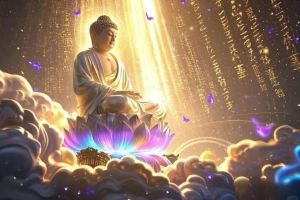
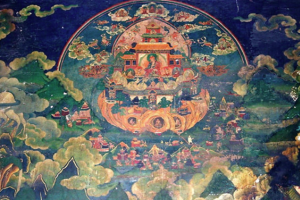























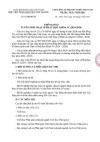
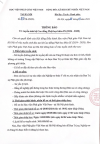
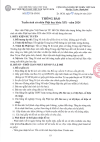



Bình luận (0)